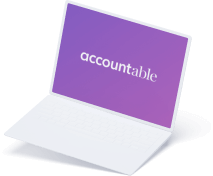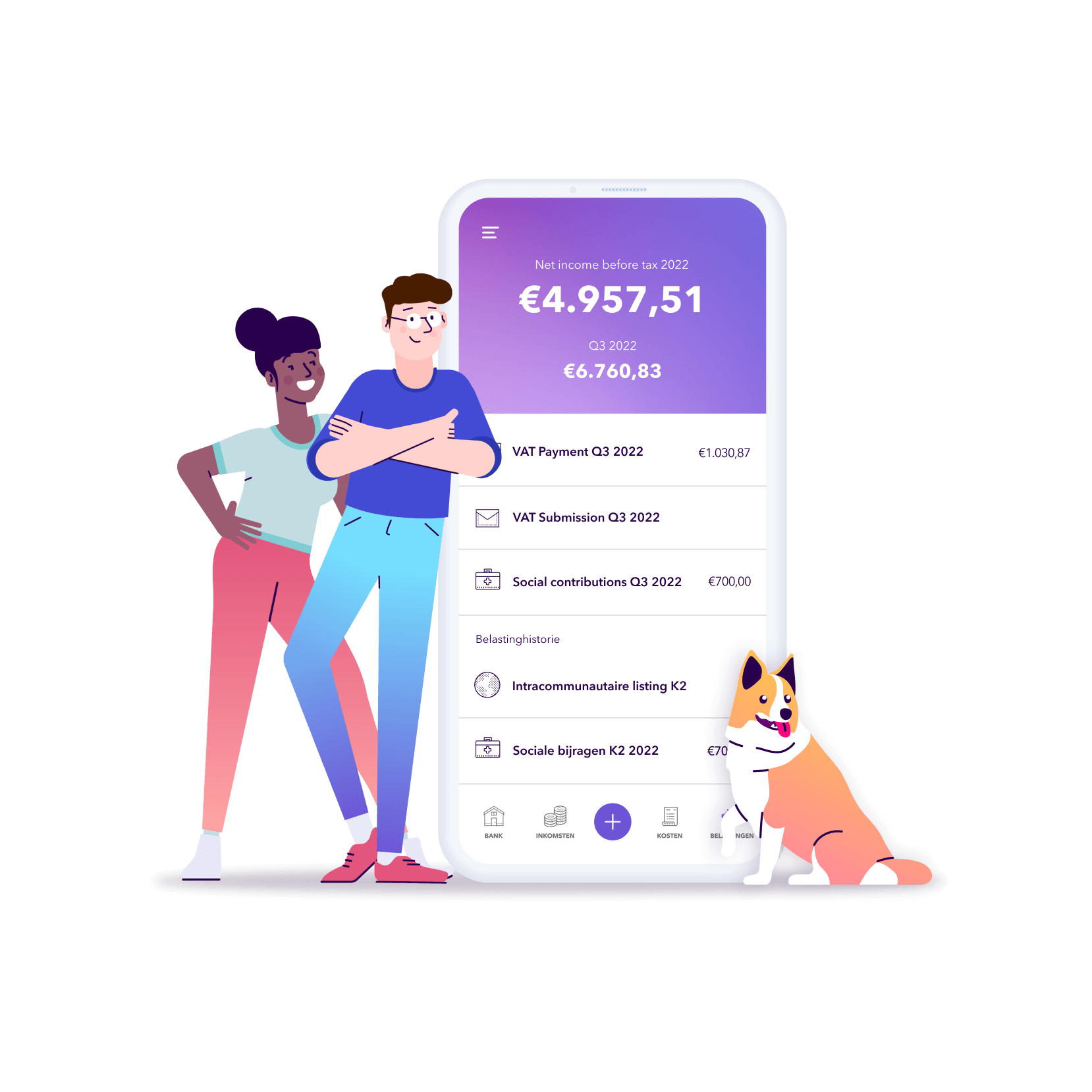
Becoming self-employed: how to create a successful Shopify webshop
Read in 5 minutes
Imagine: your own webshop or e-commerce, where you have the freedom to be your own boss, sell products to a global audience, and build a brand that’s entirely your own. Starting a Shopify store as a freelancer offers incredible opportunities, but it also comes with responsibilities like tax registration and admin. We support you through these steps to make your e-commerce adventure a success!
What is Shopify?
Shopify is a platform that aims to make e-commerce simple for everyone. In fact, it’s very likely that Shopify is the platform behind your favourite online store, especially if it’s run by a local entrepreneur.
With Shopify, it’s all about getting your store online, setting up a convenient and secure payment system, optimising your online visibility through SEO, and creating a user-friendly website. And the best part? Shopify ensures that your site has a great design and works flawlessly, whether on mobile or desktop.
But wait, that’s not all! Shopify isn’t only a great tool for enabling online sales, it also offers many possibilities for physical stores. You can easily track all your transactions in a central database, which is especially useful as your product range expands and inventory management becomes more complex.
If you want to add additional features to your online store, don’t worry. There’s a growing community of developers creating great Shopify apps, allowing you to optimise processes like social media marketing and gathering reviews.
Shopify opens doors for small, independent entrepreneurs with big ideas. While physical stores are limited to a fixed location, an online store offers the opportunity to expand your market. So you, as a local entrepreneur, can become a national or even international sensation. This is especially the case for entrepreneurs who specialise in a specific niche or offer something unique. Thanks to Shopify, small, niche entrepreneurs can make their product line easily accessible to a wider audience, without having to open additional physical stores.
What should you consider when starting a Shopify store?
Starting your own Shopify store as a freelancer is easier than ever these days. But don’t forget that this remains a serious undertaking, with all the related responsibilities. Here are some important things to consider when launching a Shopify store.
Register as self-employed in Belgium
Are your e-commerce or online sales just a supplement to your main income or a side job? As soon as this becomes a regular source of income, it’s best to register as self-employed.
A few years ago, you could earn a certain amount without paying taxes, but today, that’s no longer the case. As soon as your income is no longer occasional, you must declare it to the tax authorities. This is done in your tax declaration under the heading ‘miscellaneous income’, which is taxed at 33%. But be careful, this is only for very occasional income which occurs rarely. In other words, if you sell more than one product per year, it’s better to register as self-employed in a primary or secondary occupation.
As the income from your Shopify webshop will most likely not be sporadic (or at least we hope not), it is recommended that you register as self-employed in main or secondary occupation. Plus, as a self-employed person, you can reduce your tax burden by deducting professional expenses.
Discover how to become self-employed in 5 easy steps!
Mandatory information for customers
Running an online store means you have to comply with distance selling regulations. You must provide clear information to your customers about your business, including your business name, business number, physical address (not a PO box), phone number, and email address. In addition, product details such as price, VAT and shipping costs should always be clearly stated.
Offer secure payment options
Make sure your online store offers secure payment methods your customers can trust. Inform them about the different payment options they can choose from and make sure their personal and financial data is protected.
Transparent delivery and returns policy
Clearly communicate your delivery options and returns policy before customers make a purchase. Inform them of the estimated delivery times and any additional costs. Being transparent about these details helps you gain your customers’ trust.
Keep up to date about legal requirements
E-commerce laws and regulations can change, so it’s important to stay informed about your legal obligations.
What admin is involved in an online store?
As an online store owner, it’s crucial to stay on top of your administration.
• Conservation is key: All incoming and outgoing invoices must be retained for seven years. Make sure your admin is in order because if the tax authorities come knocking on your door, you’ll have to present your accounts. And they need to be accurate.
• Invoices: Forget purchase orders. Focus on invoices that have an invoice number and all the required information. In the event of returns, be sure to credit the payment and generate a credit note.
• VAT declaration: Each quarter, you must declare your sales and expenses. On top of that, there’s your annual income tax declaration and, if you have a company, your annual balance sheet filing and corporate tax declaration.
• OSS regime: International sales within the EU make things a little more complex. Via the one-stop shop (OSS), you declare the foreign VAT due only once per quarter. You’ll find all the necessary information here.
• Automation: Manually tracking your purchases? It’s best to avoid that! Digitise your purchasing administration and scan your invoices. This will save you a lot of time.
How does VAT work on Shopify?
VAT, taxes and all the paperwork – we know it’s not the most fun topic when you’re launching your own Shopify store. But it’s important to do it well. As a seller, you may be required to collect taxes on your sales and then report and remit them to the government.
You can set Shopify to automatically calculate the most common sales taxes. And if you’re faced with more complex tax laws and situations, you can set up tax transfers to handle it all properly.
Shopify uses standard VAT rates, which are updated regularly. If you use these rates, make sure they’re up to date and correct for your specific situation. Otherwise, you can always adjust them manually.
But keep this in mind: Shopify doesn’t file a VAT return or remit VAT for you. Depending on your location, you may need to register your business with the local or federal tax authorities to properly process your VAT. But don’t worry, the calculations and reports provided by Shopify will definitely help you file and pay your taxes.
Tax law can be complicated, that’s why it’s a good idea to contact an accountant to make sure you’re applying the right VAT rates and that everything is recorded correctly.
What about VAT on digital products?
Digital products, such as e-books, software and online courses, are a growing market in today’s digital society. They provide consumers with direct, convenient access to content, often in just a few clicks. For sellers, they’re attractive because of their global reach.
It’s extremely important to know the VAT regulations for digital goods in your region, as they may vary. Knowing the rules and correctly applying VAT is essential to ensure you meet legal requirements and avoid unpleasant surprises when running your online business.
Accountable is there for you
Uploading your invoices and expenses with ease and 100% correct tax returns? That’s Accountable. Know at any time exactly how much you earn and get reminders for every important deadline.
As foreign VAT can become be very complex, we only recommend using Accountable as a Shopify seller if you:
- Are limited to local sales (Belgium), charging and collecting the Belgian tax rate themselves.
- Sell in the EU (max turnover per year €10,000), charging the Belgian tax rate and collecting it themselves.
Sellers who sell for more than €10,000 per year in the EU, charge foreign VAT rates, have to file foreign VAT declarations (OSS scheme), or where the sales platform itself receives the VAT, benefit from support from a specialised accountant.
Do you have questions about this or would like a warm referral to a specialised accountant? We’re happy to help.
Did you find what you were looking for?
Happy to hear!
Stay in the know! Leave your email to get notified about updates and our latest tips for freelancers like you.
We’re sorry to hear that.
Can you specify why this article wasn’t helpful for you?
Thank you for your response. 💜
We value your feedback and will use it to optimise our content.










